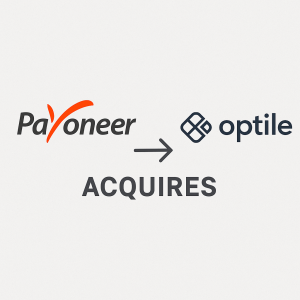working from home became the norm for millions of employees across North America
Boost Your Day-to-Day Productivity and Efficiency

Last year, working from home became the norm for millions of employees across North America. That shift came out of necessity because of the COVID-19 pandemic. The real question is, will it remain a reality throughout 2021 and beyond?
According to several surveys, the answer is a surprising yes. Last April, Gartner polled chief financial officers and found that 74% plan to permanently shift employees to remote work after the COVID-19 crisis ends. Last October, Enterprise Technology Research found that the number of workers expected to permanently work from home in 2021 would double. And just last month, analysis firm CCS Insights predicted that, by 2022, more than half of all office-based employees will continue to complete much of their work remotely.
Driving that trend is the fact that productivity has actually increased over the last year. A poll of 10,000 workers conducted by a University of Chicago economist found that 41% thought working from home was more efficient than working in an office; an even higher margin—61%—said that productivity was even better than expected.
Those gains can only stick, however, if work-from-home arrangements are carefully thought through. Remote employees want more engagement and collaboration now that meetings are conducted virtually. When companies formalize remote work guidelines, it benefits all employees. And when those workers have office setups that are primed for productivity, temporary boosts in efficiency can be made permanent.
eData CRM Solutions has spent the last year helping businesses big and small to navigate this new reality. We’ve collected the following six tips that can empower employees to work smarter and faster, no matter where their office is located.
1. Fast, reliable Internet connection.
Gone are the days of basic residential Internet service fulfilling everyone’s needs. Telecommuting and videoconferencing are the norm, and anyone who’s tried to listen to a glitchy conversation or watch a choppy video knows how important a speedy connection is. Many workers also need reliable access to cloud applications and network data, so there’s no time to wait on slow, buffering Internet. Lightning-fast fiber service is becoming more common in more cities, while high-speed broadband continues to roll out in even remote parts of North America. A trusted IT provider can help assess the connections used by your business and your employees, recommending reliable and affordable solutions as needed.
2. The right monitors in the right place.
This tip is important for productivity—and for employee health. Properly positioned monitors can reduce eye strain and mental fatigue, which is more important than ever in our continuously connected world. Deploying dual monitors can also enhance day-to-day work, enabling more flexible multitasking and empowering employees to prioritize projects more easily. Give this option extra precedence if your staff works with large data sets, specializes in visual and creative arts, or performs duties that require extra speed and precision.
3. Dedicated web cameras.
Many of us assume that our laptop’s built-in camera and microphone make the cut, but in most cases, they perform worse than you think—especially if your computer is more than a couple of years old. Lousy connections can make you come across as unprofessional, while anyone using a desktop computer or multiple monitors can find the angle and lighting not to their liking. Investing in an affordable stand-alone webcam with autofocus and a decent microphone with some degree of noise cancellation can improve picture quality and sound enough to elevate your presentation on the next videoconference.
4. A virtual private network (VPN) connection—and a fully managed device.
Using a virtual private network (VPN) can protect you—and the company you work for. VPNs add extra layers of security to your Internet connection, shielding incoming and outgoing traffic from hackers and other threats. But VPNs can still represent a serious risk if a non-managed or personal computer connects to the office network. For instance, if that non-managed PC is infected with ransomware, the cybersecurity danger can then be transmitted to the entire office system. That’s why it’s so important that your business provides employees with IT-approved, fully managed devices that are protected by multiple layers of security. A trusted IT partner can be your biggest asset when it comes to this critical step.
5. Updated applications.
For most of us, endless notifications about software patches and security updates are nothing more than a bother. If a pop-up window prompts us to install a patch—a set of changes to a computer program designed to update, fix, or improve it—we see it as an inconvenience to be avoided. In reality, software patches are incredibly important. They fix problems and allow computers to run more smoothly, reducing the chance of a hardware or software crash. They address known security vulnerabilities, making applications (and the computers they run on) more secure. And, in rare instances, they can be too much too soon if an update hasn’t been vetted and tested to see how it interacts with other important applications. This is another scenario where a reliable IT provider can be a lifesaver by deploying only approved patches and updates in the background and during off-hours so that they don’t affect your employees’ productivity.
6. Data backup that goes above and beyond.
If your laptop or home office computer is full of work that’s critical to your job duties, you want to make sure that data is backed up every day. Everything from natural disasters to malicious attacks to user error can impair (or even halt) day-to-day operations. Most individual employees don’t think their data deserves that level of protection, but professionally managed data is key for overall business success. At eData CRM Solutions, we manage our clients’ data backups, regularly testing backups and proactively responding to any issues so you can avoid downtime and maintain regular workflows.
The tips above only scratch the surface of remote work necessities, but they represent the leading edge of strategies that can empower employees and protect businesses across North America. At eData CRM Solutions, we have extensive experience helping small businesses navigate technology changes while leveraging productivity and efficiency tools to work smarter and faster.








